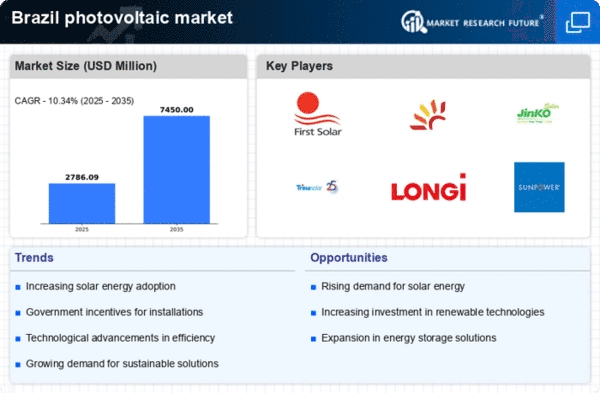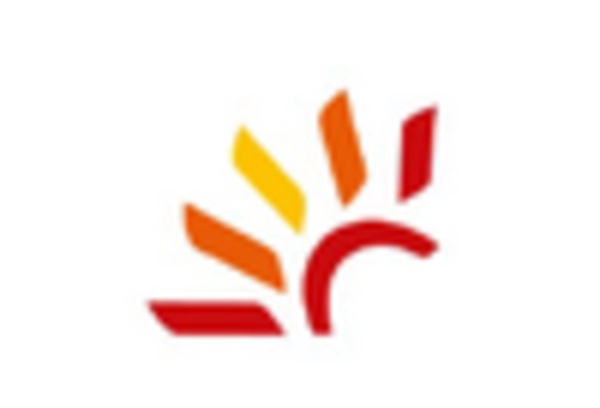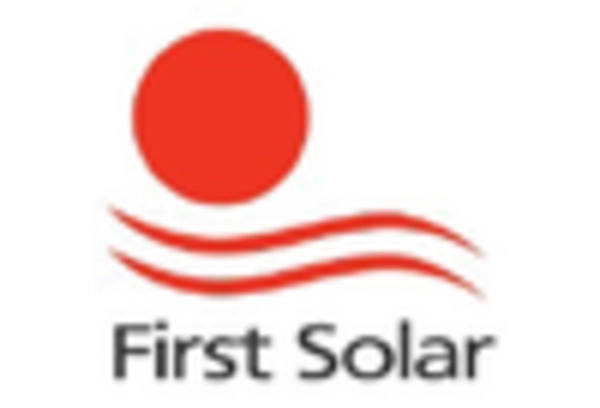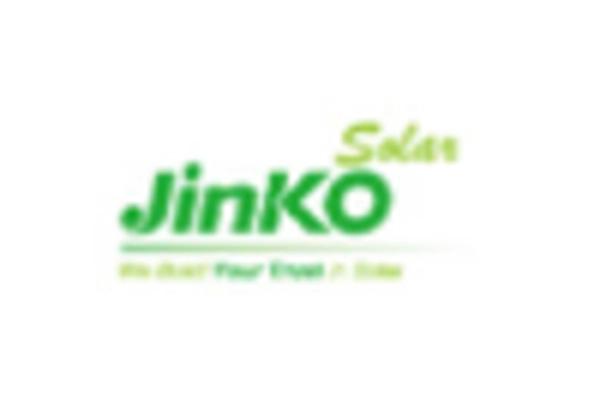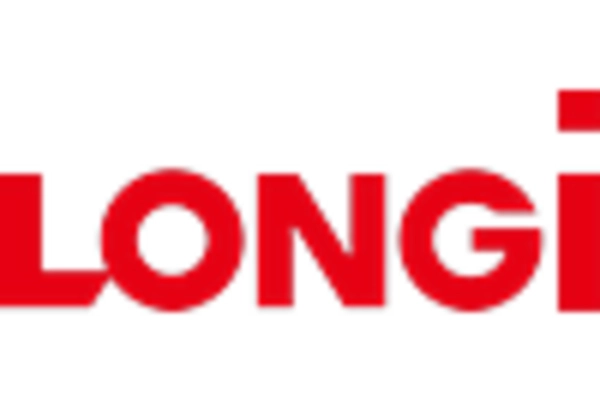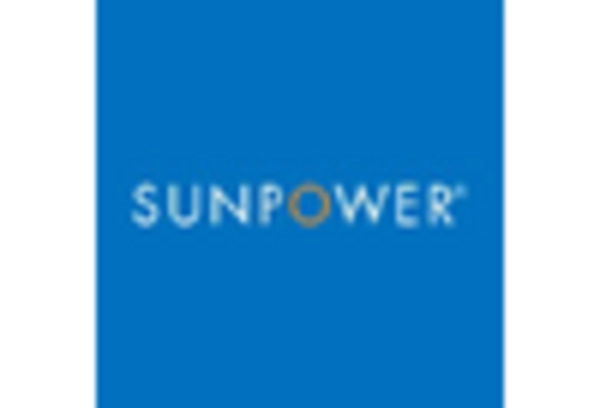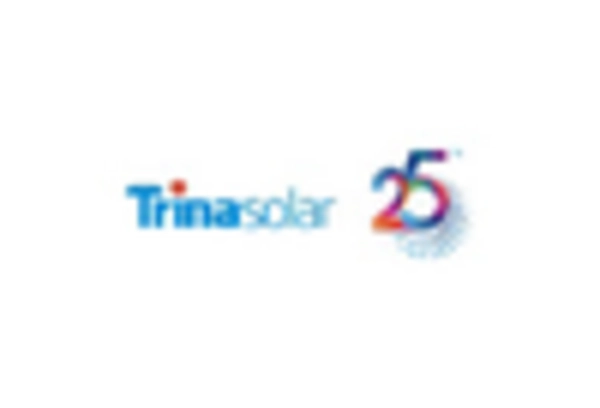Rising Energy Demand
The increasing energy demand in Brazil is a crucial driver for the photovoltaic market. As the population grows and urbanization accelerates, the need for sustainable energy sources becomes more pressing. In 2025, Brazil's energy consumption is projected to rise by approximately 3.5% annually. This surge in demand necessitates the adoption of renewable energy solutions, particularly solar power, which is abundant in the region. The photovoltaic market is likely to benefit from this trend, as more consumers and businesses seek to reduce their reliance on fossil fuels. Furthermore, the Brazilian government has set ambitious targets for renewable energy, aiming for 45% of the energy matrix to come from renewable sources by 2030. This commitment further stimulates investment and innovation within the photovoltaic market.
Supportive Regulatory Framework
A supportive regulatory framework is essential for the growth of the photovoltaic market in Brazil. The government has implemented various policies aimed at promoting renewable energy, including net metering and tax incentives for solar installations. These regulations facilitate easier access to financing and encourage investments in solar technology. In 2025, it is estimated that approximately 1.5 million households in Brazil will have adopted solar energy solutions, largely due to these favorable policies. Furthermore, the Brazilian Electricity Regulatory Agency (ANEEL) continues to refine regulations to enhance the integration of solar energy into the national grid. This proactive approach by the government not only fosters a conducive environment for the photovoltaic market but also aligns with Brazil's commitment to reducing greenhouse gas emissions.
Declining Costs of Solar Technology
The declining costs associated with solar technology are significantly influencing the photovoltaic market in Brazil. Over the past decade, the cost of solar photovoltaic systems has decreased by nearly 80%, making solar energy more accessible to a broader audience. This trend is expected to continue, with projections indicating that prices may drop an additional 20% by 2030. As the cost of solar panels and installation decreases, more residential and commercial entities are likely to invest in photovoltaic systems. This shift not only enhances energy independence but also contributes to the overall growth of the photovoltaic market. Additionally, the reduction in costs is complemented by advancements in technology, which improve efficiency and reliability, further encouraging adoption across various sectors in Brazil.
Increased Private Sector Investment
Increased private sector investment is a pivotal driver for the photovoltaic market in Brazil. As awareness of climate change and sustainability grows, more companies are recognizing the financial and environmental benefits of investing in solar energy. In 2025, private investments in renewable energy are projected to reach approximately $10 billion, with a significant portion directed towards photovoltaic projects. This influx of capital is likely to accelerate the development of solar farms and residential installations, thereby expanding the market. Additionally, partnerships between private companies and government entities are becoming more common, facilitating the sharing of resources and expertise. This collaborative approach not only enhances the efficiency of solar projects but also strengthens the overall photovoltaic market.
Technological Innovations in Energy Storage
Technological innovations in energy storage are emerging as a critical driver for the photovoltaic market in Brazil. As solar energy generation is intermittent, advancements in battery technology are essential for maximizing the utility of solar power. In 2025, the market for energy storage solutions is expected to grow by over 25%, driven by the need for reliable energy supply. Improved battery systems enable consumers to store excess energy generated during the day for use during peak demand hours. This capability enhances the attractiveness of photovoltaic systems, making them a more viable option for both residential and commercial users. Consequently, the integration of energy storage solutions is likely to propel the growth of the photovoltaic market, as it addresses one of the key challenges associated with solar energy.


